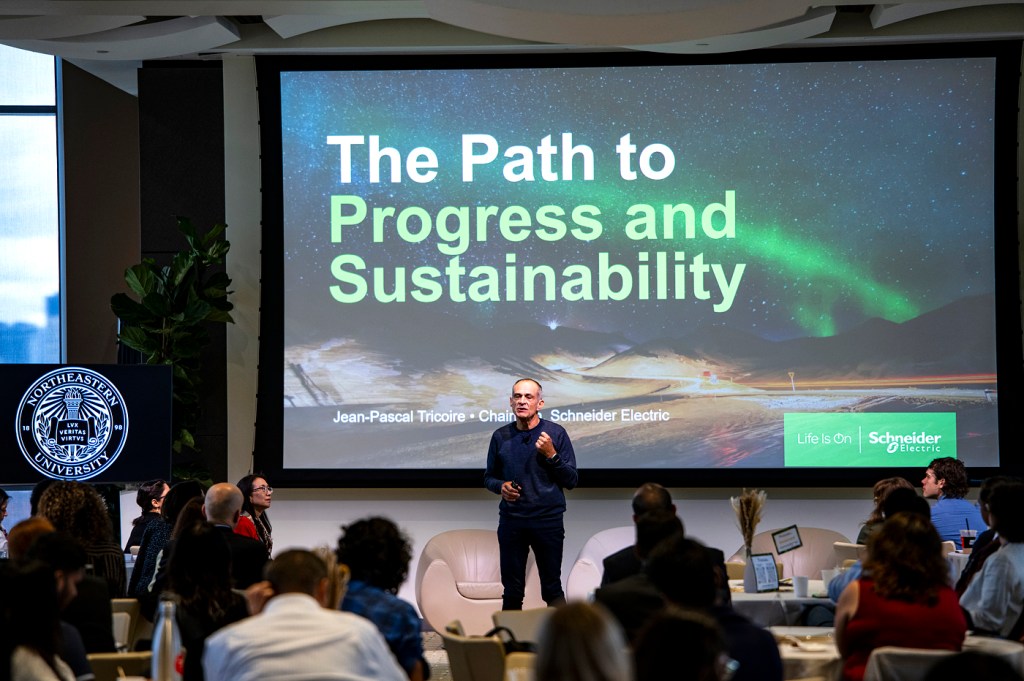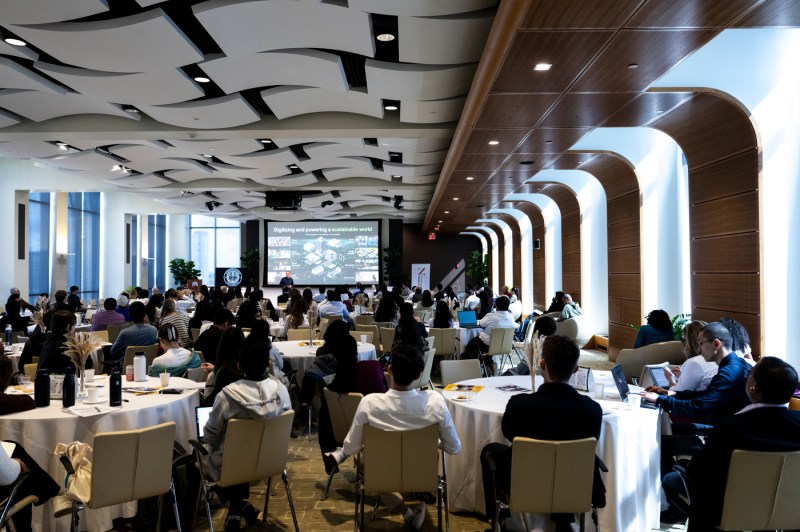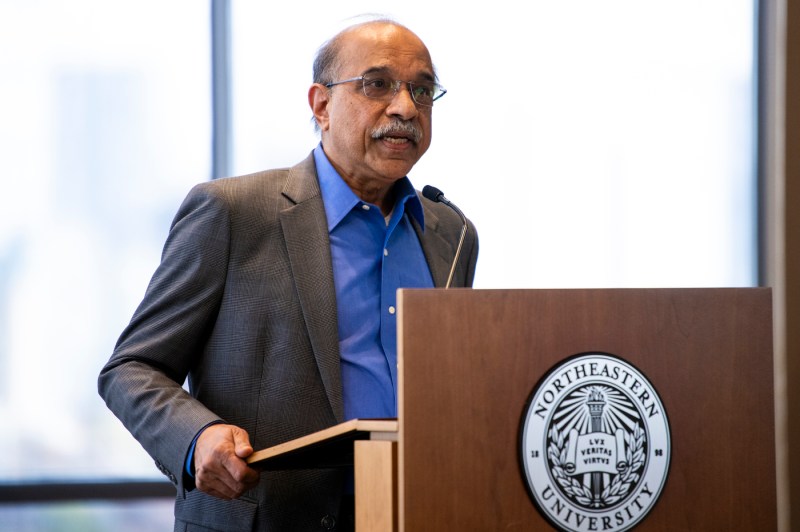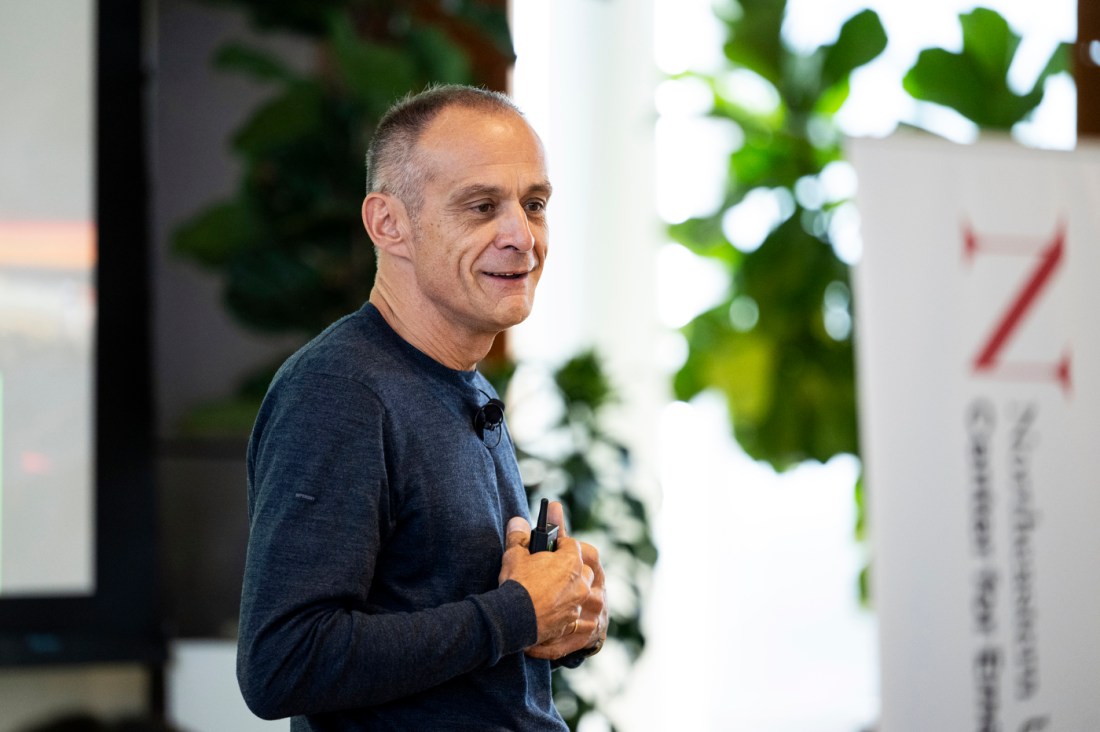Global energy executive Jean-Pascal Tricoire sees a bright future for sustainable development
Tricoire, a Northeastern University trustee and chair of Schneider Electric, says electrification and energy efficiency will fight climate change and empower local communities.

Jean-Pascal Tricoire, a Northeastern University trustee who chairs a multinational energy management corporation, sees a global future in which energy fuels jobs and education — in even the poorest countries across the globe — while carbon emissions take a tumble.
Tricoire, the chair and former CEO of Schneider Electric, shared his vision during the keynote address at the Global Sustainability Summit hosted by Northeastern’s Center for Emerging Markets.
The key, Tricoire said, will be engaging with local economies in the use of technologies such as digitization and microgrids in the move away from fossil fuels.
If everyone in the world consumed energy the way North America does now, he said, the planet will be unlivable.
“The present model doesn’t work,” Tricoire said.
“If you want to transition the planet to a more sustainable model, we need to transition the way we use energy,” he said.
To reduce the world’s global carbon emissions from 36 gigatonnes as of 2022 to net zero by the target date of 2050, “We need to move our energy usage from fossil fuel to electricity,” Tricoire said.




Transitioning to electricity will also help provide energy to 5 billion more people, a number that includes both population growth and expanding energy to corners of the globe where residents are currently without modern sources of energy, to the detriments of their personal lives and economies, Tricoire said.
“When you love life, don’t forget one thing — it’s all about people,” he said.
Decarbonization also involves the use of renewable energy, and microgrids, smart grids and the use of digitization to increase energy efficiencies, said Tricoire, whose company is a leader in digitization.
Featured Posts
In his vision, local communities and economies will have more power, both literal and figurative. Tricoire said when the roof of your home or company is an energy producer, “You’ll become your gas station if you own an electrical car. That’s a major change which I am very excited about.”
Tricoire started his career with Schneider Electric more than 30 years ago working with emerging economies in South Africa and China. Today, Schneider Electric employs 28,000 people in China and 37,000 in India.
Tricoire said the company has transformed itself over the years and remains committed to global sustainability.
Growing up in a farming family in France, Tricoire — who took his first plane trip at age 23 — says he knows from firsthand experience that nature always has the final word.
“It’s not just about climate change. It’s about health,” he said, citing legendary air pollution in Beijing, which has decreased in recent years as the city moves to clean energy.
It’s not just energy producers — architects, designers and planners have to rethink what it means to build energy-efficient cities, homes and factories, Tricoire said.
In the next 20 years, the number of buildings in the world will double, mainly in emerging economies that will have a chance to build from scratch, he said.
“There are opportunities for new economies,” Tricoire said.
He told attendees they are living in a time of major challenge and opportunity, with AI allowing people to be more productive and spend time on things that matter.
Asked for career advice, he admitted he “was not a great student” but learned to look for challenges.
For his first 15 years, “I took the job nobody else wanted,” Tricoire said.
“I never learned as much as when I went into difficult places,” he said. “Go to places which are far away from your comfort zone. Those are the places where you learn the most.”











